This site clarifies Japanese national character based on the facts.
|

For the first time in their histories, Ho Chi Minh City and Hanoi are both in the middle of desperately needed major metro-system projects that aim to transform their cities. Both are facing delays, but a series of high-profile accidents has already cast a larger shadow over the Chinese-led effort in the capital. In contrast, the metro project led by Japanese conglomerates in Ho Chi Minh City has been accident-free. This feeds into longstanding assumptions in Vietnam about the perceived superiority of Japanese workmanship and engineering. Hanoi's controversial line The first metro line in Hanoi broke ground in October 2011 and is called Line 2A. A series of accidents has damaged its public image. On November 6, 2014, several reels of steel fell from the construction site of a flyover on the line, killing a motorbike driver and injuring two more passers-by. The following month, a 10-metre-high section of scaffolding fell from the same flyover, trapping three people in a taxi that was travelling beneath it. In 2015, the line drew criticism when people noticed that the track, which runs above major thoroughfares and intersections, looked wavy, raising concerns over its safety. That August a steel bar fell from another construction site onto a car, nearly killing the driver. This May, a government inspection team detected rust on sections of the train track that hadn’t been covered in protective paint. A number of loose joints were found as well. Vietnam’s Ministry of Transport has responded swiftly to these incidents by calling for improved safety measures, and while there hasn’t been an accident in roughly two years, the project’s reputation is poor. Ho Chi Minh City’s safe, slow-moving first line Down south, Jica has been involved in Ho Chi Minh City’s Line 1 since 2006, when the organisation conducted a feasibility study for the project. Takahashi Akito, a senior representative with Jica Vietnam, said they are now monitoring the construction process and environmental and social issues, in addition to resolving bottlenecks in order to ensure smooth implementation. While both of the metro lines are behind schedule and over budget, there is a clear difference in their safety records. Ho Chi Minh City’s Line 1 hasn’t suffered any reported accidents The string of accidents in Hanoi from 2014 to 2015 has, in the eyes of some, hurt the image of the city's vital first metro line. “The line in Ho Chi Minh City is much better perceived,” Michael Waibel, an expert at the University of Hamburg's Department of Human Geography, said. “Apparently, there is a higher trust in Japanese technology.” |
My Opinion
|
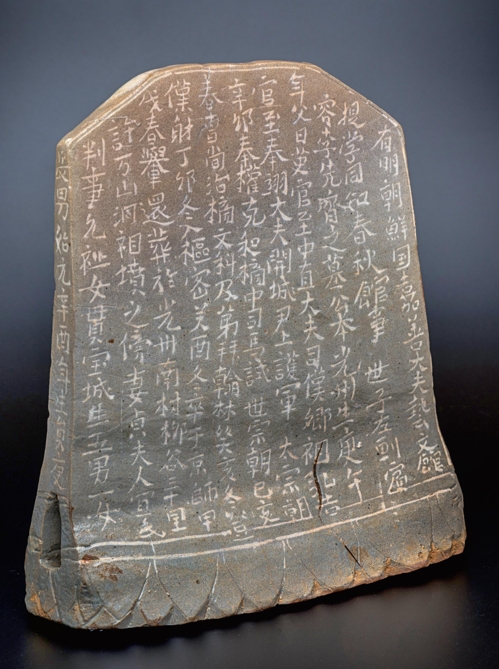
A cultural asset from Korea’s Joseon dynasty, stolen some 20 years ago and later held by a now-deceased Japanese collector, has been returned to South Korea. The epitaph on porcelain of a high-ranking official of the dynasty who lived in the 14th and 15th centuries was donated last month to the National Museum of Korea in Seoul by the collector's family. The item was taken to Japan in 1998 after being stolen by the Korean trafficking organization from the South Korean city of Gwangju. It later came into possession of collector Takashi Todoroki, who did not know it was stolen. |
My Opinion
|

World champion Lukas Podolski admitted Japan for changeover difficulties in his new homeland. First of all, the sultry weather prepared to him at beginning problems. In the first few weeks, it was very extreme, says Podolski in an interview with the “kicker”. “But I'm going to get used to it.” 32-year-old has difficulty adjusting on the pitch, too. “The football in Japan is different. The level in Europe is higher. So I need time to understand how soccer works here,” said Podolski, “and how I can bring my qualities even more to validity.” In the Japanese J-League, Vissel Kobe has only eleventh place after four defeats in five games, and Kobe has already failed in the quarter-finals in the League Cup. For Podolski, the body language of his team mates also plays a role. “The club wants me to have a broad chest, to be direct and to get the other players together,” said Podolski who had already made a stop in London, Milan and Istanbul. About the mentality of the Japanese, “They are much restrained, nice and polite. But that is not helpful on the pitch.” said Podolski. |
My Opinion
|

It is important at first to ask whether “being moved forcibly, 200,000 people and sex slave” are facts or forgeries. The issue of “comfort women” Korea insists on includes three cores concerned. They are “being moved forcibly, 200,000 people, sex slave”, but there are no objective evidences that support three at all. It is mainly only the claim that women who insist they were “comfort women” victims and anti-Japan group appeal for. Nevertheless Japan carried out multiple apology and compensation in consideration of the human rights of people who insisted that they were “comfort women” victims. For all apology and compensation, Koreans are not able to be satisfied with them. Without objective evidences, they diffuse “comfort women” problem to the world and criticize Japan obstinately by the resolutions, the criticism statements and statues of “comfort women” in the third countries such as the United Nations or the United States. If Korea acts like that in the state that the minimum objective evidence was secured, it can be understood to some extent. However, I cannot but consider that it is abnormal to act like that in the state that there is no objective evidence at all. Rather if you watch the objective informations and documents that gradually appear, you find only the records that indicate that “comfort women” s in those days are just prostitutes. You can see that “comfort women” earned, shopped and remitted money to their hometowns. Anyone can understand immediately in common-sense that it is impossible to claim that “comfort women” are the sex slave. I think that it is not important if we remove statues of “comfort women” or not, but it is important to investigate if “comfort women” -related contents (being moved forcibly, 200,000 people and sex slave) that we know so far are the truth or the forgery. This is the problem that is important rather for the future in Korea regardless of Japan. If “being moved forcibly, 200,000 people and sex slave” are forged contents, 50 million Koreans have been deceived during the past dozens of years, and it concludes they were only manipulated by “made anger”. I think that it will be necessary someday by all means to investigate the core case of the issue of “comfort women”, in order to restore pride of the Korea race and to study the truth properly. If the forgery creates anger, invites various kinds of confusion and wastes the strength of our nation, it is a vicious crime more than the world general brutal crimes. |
My Opinion
|
Chinese students act freely as they like, but Japanese students sit down and line up to one line notwithstanding their big suitcases. Japanese students choose the place with a few people and sit down calmly at a public place not to be a nuisance to other airport users. Chinese must think about the comparison of these students' acts seriously. |
My Opinion
|

Uzbekistan MF soccer player Musaev (28) who plays at Japanese team Jubilo Iwata dropped his wallet and it came back to his hand on June 27 through Iwata police station after 3 days. The contents did not have a change at all. He is impressed by the good will that he felt in a foreign country and is looking for the finder who sent it to the police station by anonymity. He said, "When I filled my car with gas at the service station in Iwata city at about the midday of 24th, I got my car to start with my wallet on it, and I lost it." The wallet contained some cash, a residence card, a credit card, etc. According to the police station, the wallet reached the Tomioka police box in Tomisato on 25th. But the policeman was absent then, and the wallet was put with a memo that wrote the place and the time the finder picked it up. Musaev came to Japan in this January. He admired this and said, "If Uzbekistan, the contents are stolen and it is thrown away. It is unbelievable that a wallet returns". And he added, "I was so uneasy that I called my father. I want the person who sent it to contact me through my team." |
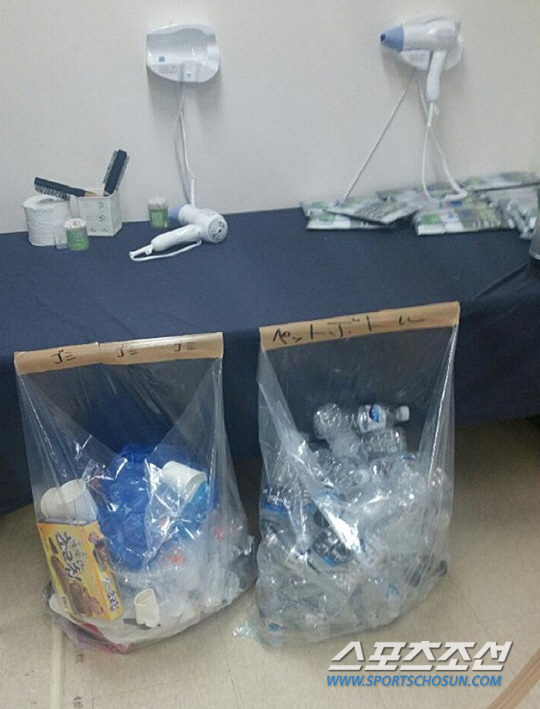
A locker room did not have one wastepaper. They collected and classified all." On the night of May 27, Italy vs Japan, a group match of FIFA U-20 World Cup Korea Republic 2017 was carried out. After the game, Kim Byung-soo, the superintendent in charge of the organizing committee Cheonan city World Cup support group was astounded at unbelievable scenery. After having finished a refreshing excellent game, the locker room of the Japanese team they left was clean incredibly. The members could not find one wastepaper, and the plastic bottles and the paper cups were classified exactly. The employees who were tired from the hard work of the game schedule repeated every three days felt the feeling of thanks to the quiet consideration of the young team. Korean net user We show our respect for Japanese. They are well-mannered, they have deep consideration and make an effort to respect neighbors, except some politicians. This is becahuse they received such an education since they were young. They study eagerly, but do the manner education eagerly. That is the point different from Korean. |
My Opinion
|

According to Ministry of Agriculture, Forestry and Fisheries of Japan (MAFF), 90% or more of the strawberry cultivation area in Korea cultivates strawberry developed based on Japanese kinds. "Tochiotome" that Tochigi prefecture developed and "Red pearl", "Akihime", etc that Japanese farmers developed were took out into Korea without any permission, and Korea crossbred them and developed the kinds called the "Solhyang", "Mehyang" and "Kumhyang". Their export to each Asian country is prosperous, too and exceeds Japanese kinds. MAFF thinks that if Japanese kinds had not flowed out into Korea, Korean kinds would not have been developed and exported. MAFF calculated the amount of loss, assuming that strawberry that Japan should be able to export was replaced by products in Korea. It estimated the amount of loss of Japan for five years was up to 22 billion yen. The Japanese export of strawberry was 1,100 million yen last year. It is 5,500 million yen in five years. So the amount of loss is approximately 4 times of that. If Japanese farmers had been able to register the kinds, they would have got 1,600 million yen a year as royalty. Korea has the variety registration system, but the strawberry was out of registration until 2012, and so Japanese side was not able to register the kinds before the outflow. Because Japanese farmers could not register the kinds, they could not demand suspension of the cultivation and the disposal of Korean products.
|
My Opinion
|
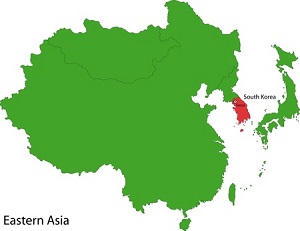
A Korean scholar said, "Japanese are recently translating 'Anti-Korea' feelings into action, because there is the historical issue between Japan and Korea. People of two countries don't trust each other and they criticize each other. In addition, it influences the feeling that Japanese economy is stagnant in the long term. The governments of two countries leave their public opinions to do as they like. Lu Hao, a member of Japan Institute in the Institute of Chinese social studies said, "Japanese contempt to Korean has the historic reason". Mr. Lu said, "After the Meiji Restoration in Japan, the Japanese modernization level led the Korean Peninsula from beginning to end. And Japan did the colonization to the Korean Peninsula. Korea was a Japanese dependency until World War II end all the time. Such a historic process leads Japanese arrogant attitude toward Korean residing in Japan, and the specific discriminatory name has the origin here." After World War II, many Koreans stayed in Japan, and lived there. It was difficult for them to adapt themselves to the Japanese society, and as they were watched on by Japanese Government and the U. S. Forces in Japan in the Korean War, they were out of the society in the long term. And as some Koreans made the illegal groups and engaged in illegal business, Japanese people had ill feeling to them. |
My Opinion
|

Mr. Yu was broadcasting his trip on the internet TV in Kyoto in Japan. He stopped in front of a ramen shop. He opened the door of the shop and asked in Japanese, "Is this a bar?" "Is this a dining room?". Then he heard "fuckin' Korea" from the shop. He closed the door and looked at the inside of the shop over the door. Then the man thought to be the customer who sat down near the entrance approached Mr. Yu and said "What?". Mr. Yu also said "What?". The man said, "I said 'fuckin' Korea'. Go out!" Japanese television network, TV Asahi found this man. He said, "I said the words you must not say because I got drunk, and I apologize to him for that." "His Japanese intonation was different from Japanese. So I understood that he was a Korean", he added, "I got angry because he entered the shop filming us with his video camera. |
My Opinion
|
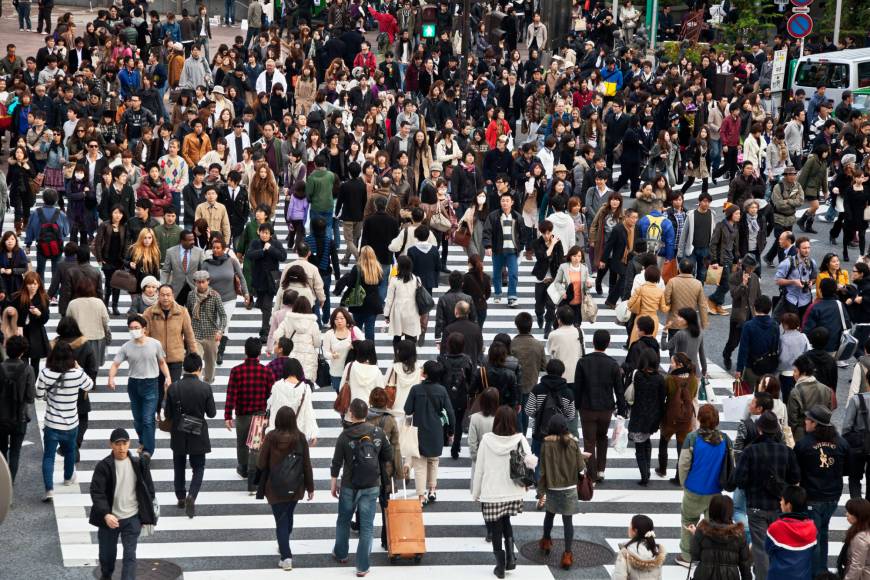
In addition to keys and eyeglasses and other commonly lost objects, millions of dollars worth of cash reaches the Tokyo police’s lost and found department every year. In fact, last year people handed over a record 3.67 billion yen ($32 million) in lost cash, and about three-quarters of that money ended up back with its rightful owners, according to the Metropolitan Police Department. It’s a phenomenon that reflects the Japanese people’s devotion both to cash and to returning lost property. There was about 103 trillion yen in cash circulating in 2015 ? equivalent to about 19 percent of Japan’s annual output. That’s the highest level among 18 developed nations and regions studied in a Bank of Japan report released in February. Holding cash presents relatively little risk in Japan. The country has battled deflation for more than a decade, making cash a profitable investment at times. Even now, after four years of extraordinary quantitative easing by the central bank, interest rates are at about zero. There is also very little crime and virtually no fear of getting robbed. In Tokyo, one of the world’s most crowded cities, it is not uncommon for people to “reserve” seats in cafes by placing their new iPhone on the table while going to order at the counter. And even the most seemingly worthless misplaced personal items will be kept by merchants just in case their owners come looking one day. Some attribute this to Japanese culture and ethics education. “Japanese schools offer classes for ethics and morality, and students learn to imagine the feelings of those who lost their own goods or money,” said Toshinari Nishioka, a former policeman and currently a professor at Kansai University of International Studies. “So it’s not rare to see kids bringing a 10 yen coin to a police office.” There are also rules and rewards. Japan’s Lost Goods Law states that anyone who finds money must give it to the police, and has the right to receive a reward of 5 percent to 20 percent if the owner claims it ? and all of the money if no one claims it within three months. |
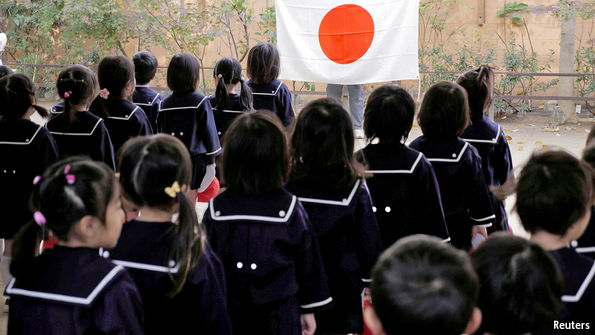
Students recite the Imperial Rescript on Education in front of Japan’s flag and a picture of Emperor Akihito and Empress Michiko at Tsukamoto kindergarten in Osaka. The great-grandparents of Tsukamoto's pupils were once taught similar fare, but state schools toned down the nationalism in the aftermath of the second world war. Until recently few Japanese realised that any private schools were still peddling such jingoism. They were even more surprised to learn that the government seems to have been encouraging them. Last year Moritomo Gakuen, the firm that runs the kindergarten, bought a plot of public land in the city of Osaka at a knock-down price?perhaps 14% of its value. It began building a primary school to propagate the same ultranationalist ideas. It invoked the name of Shinzo Abe, the prime minister, when soliciting donations. His wife, Akie, gave a speech at the kindergarten and was named honorary head teacher. Tomomi Inada, the defence minister, sent a letter thanking the kindergarten for raising the morale of Japan’s soldiers, after it had dispatched pupils to the docks to welcome returning warships. Mr Abe denies any involvement in the land sale, and says he will step down if anyone can prove otherwise. He and his wife were badgered into helping the kindergarten, he insists, by its head teacher, Yasunori Kagoike, who had used his name to raise money “despite my repeated insistence he should not do so”. Mr Abe had previously praised Mr Kagoike, however, saying he had an “admirable passion” for education and that they shared a “similar ideology”. As scrutiny grows, there are signs of revisionism on both sides: all references to Ms Inada and Mrs Abe have been unceremoniously scrubbed from the kindergarten’s website. Tsukamoto has been investigated under hate-speech laws. It sent notes home to parents referring to Chinese people as shinajin?the rough equivalent of “chink”. Mr Kagoike’s wife, the deputy head, sent a letter to the parent of an ethnic-Korean pupil saying she did not discriminate but “hates Koreans and Chinese”. Moritomo Gakuen is now squirming as much as Mr Abe. Officials in Osaka say the primary school may not receive a licence to operate when construction is completed. There have been fewer applicants than expected. And it has had to change its planned name, to Land of Rice memorial school, from the much grander Prime Minister Shinzo Abe memorial school. |
My Opinion
|

The order of countries according to the crime types that the World Health Organization (WHO) announced in 2013 gave a shock in Korea. In a fraud crime, Korea pushed second place Mexico and third place South Africa aside, and Korea got the first place. In other words Korea is "world's worst fraud country"(Korea・Cho Gab-je.com). According to statistics document "2016 crime analysis" of the Korean Public Prosecutor's Office, the number of fraud crimes is 203,346 in 2006, 224,889 in 2009 , 239,720 in 2012 and 257,620 in 2015. It increases steadily. According to "the crime statistics document 2015" of the Japanese National Police Agency, "number of the fraud in Japan is 39,432. In other words the number of the fraud in Korea is 6.5 times bigger than Japan. It becomes more than 10 times by the population ratio.(Korea・Cho Gab-je.com) |
My Opinion
|

Korean group iKON was chosen as the Best New Artist Award of "the 58th Japan record award" broadcasted in TBS on December 30, 2016. Against this news, Makoto Sakurai (44), former president of "Zaitokukai" said "The Korean, please do his/her best in Korea" on Twitter. For this, many articles were contributed successively from people thought to be a fan. They wrote "Die! monkey" or "Japanese are thought to be brain-damaged because of him." |
My Opinion
|
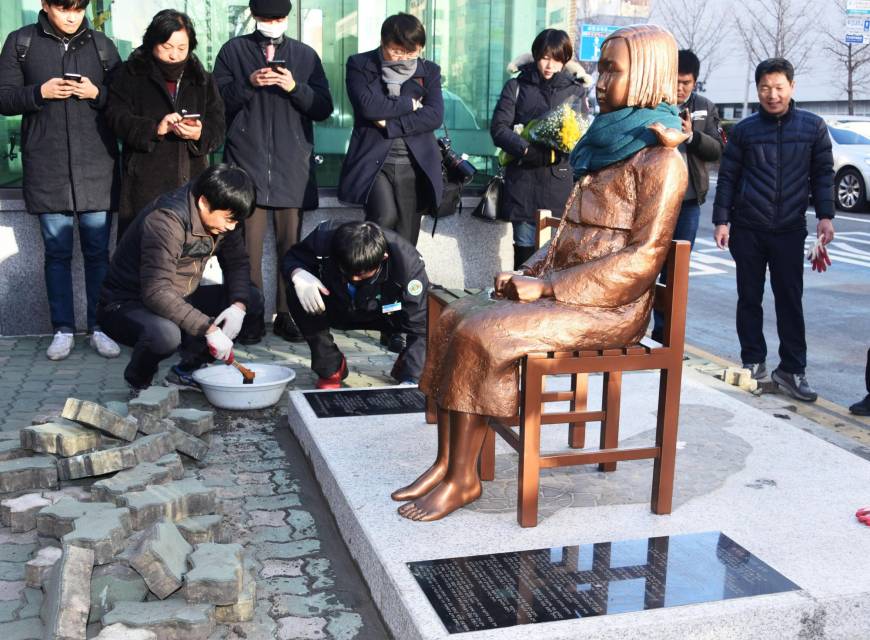
A civic group on Friday installed a statue symbolizing women forced to work in Japanese wartime military brothels in front of the Japanese Consulate in Busan, a move that could strain Japan-South Korea relations. The Japanese government has requested the removal of the statue installed in front of the Seoul embassy, claiming that it breaches the Vienna Convention on Diplomatic Relations, an international treaty that outlines a framework for diplomacy. Under the deal between Japan and South Korea reached in December last year, the two countries agreed to resolve the issue “finally and irreversibly.” South Korea set up a foundation into which Japan has deposited \1 billion to care for the surviving victims and their families. Neither government mentioned the removal of the statue as a condition for Tokyo’s financial contribution, but South Korea said that it “will strive to solve this issue in an appropriate manner.” |
My Opinion
|

Instant noodle consumption per person in Korean is the number one in the world. The first instant Ramen in Korea was released in 1963 five years later after the Japanese chicken Ramen came up. They are "Samyang Ramen" made in Samyang foods, keeping still deep-rooted popularity. In the Home Page of Samyang foods, the process that the president Chun Zhu-Jun developed instant Ramen is written down in this way. "When Samyang Ramen came up for the first time in 1963, there were many people who still suffered from hunger in Korea. President Chun made up his mind to have to solve the hunger of the people." In the early 60s Korea was one of the poorest countries in the world. "President Chun remembered that he had eaten instant Ramen when he had visited Japan once. He thought it's the only way that could solve the food problem. He persuaded the government, and he borrowed 50,000 dollars somehow, and he introduced a machine and a technique from Myojo Foods in Japan, and instant Ramen was released for the first time in Korea on September 15, 1963." About this, details are written down in the history of the company of Myojo Foods published in 1986 as recollection of President Chun. The president Sumito Okui spoke in this way. "Mr. Chun, I will cooperate overall. The engineering fees are all-free. Your country received a great disaster by the Korean War and was hurt. Japan gained by emergency demands, and Myojo Foods did not receive the benefits directly, but we are not unrelated. Not to mention engineering fees, the royalty is not necessary, either. 10 million yen is enough for the delivery price of all the facilities." The money Mr. Chun had was 50, 000 dollars, but the price of facilities was slightly less than 10 million yen. That was 26, 800 dollars. According to the recollection, Mr. Chun received the 10-day training in the factory and he received a combination list (recipe) of the raw materials which are important for instant Ramen production in Haneda Airport. Hiroshige Hayasi (76) who is a professor at the former Doshisha University graduate school and had a talk with Mr. Chun for three times talked about him. "He was the person who had human charm. He had the strong mind for the country and he thought to save the starvation of Korean people. I think Okui of Myojo Foods was impressed by his enthusiasm and told him the combination list of the soup that was the biggest trade secrets. Mr. Chun was the great person who made the Korean "national staple", instant Ramen." In Dotombori in Osaka, Japan where you can see many Korean tourists, they say "We don't know such a history". |
My Opinion
|

There is much space debris including the wreckages of the man-made satellite on the orbit of the earth. Japan will experiment on the space debris collection, using H-II Transfer Vehicle called Kounotori ("Oriental stork" or "white stork") that Japan launched on December 9. It makes the electricity flow to the wire which attached 20 kilos of device resembling debris. "Lorentz force" that occurs in a magnetic field of the earth lowers the speed of the device and drops it. And it burns out at the time of atmosphere entry. Though Japan is not a big power in space, why do you do debris collection? Because the debris collection in the space requires complicated and high technique and it helps the attacks to the asteroids that have the possibility of earth collision and it also helps the preparations of the star wars in the future. Furthermore, this may be because Japan where civilization developed highly makes much of hygiene. |
My Opinion
|
|
Japan said on Monday it had protested to China over a Chinese complaint that Japanese fighter jets had engaged in "dangerous and unprofessional" behavior when they scrambled at the weekend as Chinese aircraft flew near Japanese islands. Chinese military aircraft on Saturday flew between Japan's Okinawa and Miyako islands, and over waterways near self-ruled Taiwan - seen by Beijing as a renegade province - as part of long-range exercises, Taiwan said. Chinese defence ministry spokesman Yang Yujun said in a statement on Saturday that two Japanese F-15 fighter jets flew over the Miyako Strait and conducted "close range interference", firing decoy flares and "jeopardizing the security of Chinese aircraft and pilots". Yang said China had grave concerns and lodged a protest over the behavior of the Japanese aircraft during what he called "routine" drills in international waters. But Japan rejected China's assertion. I have received a report from the defence minister that the Japanese planes did not conduct any close-range interference toward the Chinese military planes ... or threaten the safety of Chinese military planes or its personnel, Japan's Chief Cabinet Secretary Yoshihide Suga said. The fact that China’s military unilaterally announced something clearly different from the facts is extremely regrettable and harms the improvement of relations between Japan and China, and we have strictly protested to the Chinese side, he said. Suga said Japan would watch the actions of the Chinese military, "which are expanding and increasing", and make every effort towards "firmly protecting our country's land, sea and air space and, in accordance with international and domestic law, take strict measures against any invasion of our airspace". In Beijing on Monday, Chinese Foreign Ministry spokesman Geng Shuang urged Japan to take steps to prevent "safety problems on the sea and in the air". |
My Opinion
|


On December 10, the Fukushima Prefectural Police arrested a Korean Jeong Seung-Ho (35) who had no fixed address and no occupation on the suspicion of destruction of property such as the stone statues. Similar damages occurred successively in Shinto shrines and the temples in Fukushima prefecture, and the police is investigating the connection. The reason of the arrest is the destruction of two stone statues of fox in Inari Shrine of the prefecture in the night on November 9. Furthermore, the suspicion that he invaded the front shrine and the main shrine, and destroyed the wooden statue of fox, etc.. According to the police, when a staff member of the police station was investigating a series of damage, he found the suspect Jeong who was walking National highway No.4 in Shirakawa-city alone at about the midday of December 10 and questioned Jeong. Jeong admitted to the charge and said "I broke the foxies". He had his passport, and it is considered to have entered Japan in November. The stone statues of Shinto shrines and the temples are broken in Fukushima, Koriyama, Sukagawa city, etc. in the prefecture. The damages are confirmed in higher than ten places in total, and the broken stone statues are approximately 100 bodies. |
My Opinion
|

Japanese children learn cleaning the environment of own neighborhood and community area neatly since they are little. It is not only learning, but also developing the ability of the self-management of their works and the strong sense of responsibility for the society. Furthermore, it brings up the spirit to respect results of the works of other persons. In addition, such an education means not only the participation in cleaning activity, but also learning that protecting neighboring environment is their own responsibilities and accepting their duties. And they can respect environment when they are grown up. What children need to learn is "how to be an excellent member in society. The goal of the education is not only to enhance the intelligence of children, but also to make the useful humans for society. |
My Opinion
|
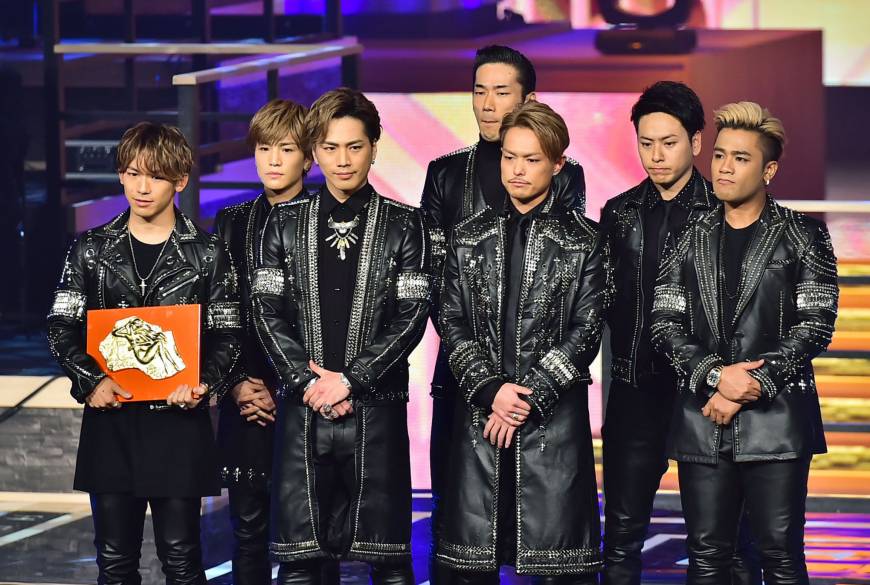
Shukan Bunshun recently ran some articles describing how last year the talent management company LDH allegedly paid entertainment behemoth Burning Productions to ensure that one of LDH’s acts would win the top prize at the 2015 Japan Record Awards (JRA). Accompanying one of the articles was a photo of an invoice on Burning stationery showing that LDH owed it \108 million for “end-of-year business promotion expenses.” LDH manages the all-male R&B collective Exile and its side projects, one of which, Sandaime J Soul Brothers, was the subject of LDH’s under-the-radar largesse and won the JRA last year. They also won it the year before, and their senpai (senior) group, Exile, won it in 2008, 2010 and 2013. Though Burning does not run the JRA — that’s done by the Japan Composers Association (JCA) — it plays a central role, in selecting the winners along with two other major entertainment companies: Avex Holdings, which owns Avex Records; and TBS, the television network that sponsors and broadcasts the JRA ceremony. The jury is made up of employees of these three companies, as well as journalists and industry insiders. Following its investigation, Bunshun contacted the related organizations. Gendai Kano, the 78-year-old chairman of JCA, apologized and told the magazine the payment was “unacceptable” without admitting that it actually occurred. Ryotaro Konishi, the chairman of the jury and a former executive of tabloid Sports Nippon, said he would have to “scrutinize what really happened.” The TBS producer in charge of JRA, Yoji Ochiai, said his company had nothing to do with the award selection, only the broadcast, but there were seven TBS staff on the jury. This confluence of denial in the face of arguably strong evidence would normally spark its own media circus, but as entertainment writer Takashi Odajima wrote in a Nov. 4 blog post for Nikkei Business Online, there has been no secondary coverage of the scandal. Odajima explains that rumors of JRA bribery have been circulating for years, “but this was the first time a related article was published with evidence, and I expected a lot of noise.” In the end, Bunshun’s bombshell “turned out to be a dud,” says Odajima. TV ignored the story completely. Odajima says that’s because broadcasters are beholden to a handful of “dons” who head the country’s major talent agencies and control which stars are available for TV appearances. What perplexes Odajima is that this corporate dynamic remains unchanged as the JRA declines in significance. |
My Opinion
|
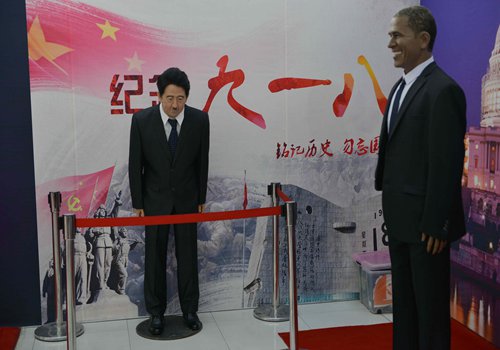
A wax figure of a bowing Japanese Prime Minister Shinzo Abe with a Hitler moustache was removed from a shopping mall in Northeast China after the mall received complaints from the Japan's consulate. On Monday, the figure of Abe bowing apologetically was seen placed along with those of other world leaders including US President Barack Obama and Russian President Vladimir Putin in the mall in Shenyang, Northeast China's Liaoning Province, revealed photos posted on Sina Weibo. A staff member at the shopping mall confirmed the removal of figures with the Global Times on Thursday. He also confirmed that the mall received complaints from the Consulate-General of Japan in Shenyang. He told the Global Times as follows.
The photo has triggered controversy online, with some saying that the statue is inappropriate, while others insisting the status did not smear Abe, urging against politicization of the statues. |
My Opinion


|
|
Wang Nan's property tycoon husband Guo Bin told his followers that when he stays in Japanese hotels, he keeps the taps running in retaliation for a Japanese invasion from 85 years ago. The tweet created a big reaction in China. The action of the couple is arrogant. This reminded me of Daimatsu. The women's volleyball team of China won a gold medal at Rio de Janeiro Olympic Games, but there is little media taking up Daimatsu who had supported Chinese volleyball. Daimatsu acted as supervisor of the women's volleyball team of Japan at the Tokyo Olympic Games in 1964, and he led his team to the number one in the world. In response to the request of the Prime Minister Chou Enlai, he was engaged in instruction of the women's volleyball in China since April, 1965 and did the training that any Chinese had not ever seen. Systematic training and the clear aim were brought China by instruction of Daimatsu. Afterwards the Chinese team overthrew Japan with three to two in the World Cup finals of November, 1981 and won the first championship with the strength of complete victory of seven wins. There was not the development of the Chinese volleyball without existence of Daimatsu. If Daimatsu had been Chinese and he had trained Japanese team, he would have been cursed by "false patriots" and "pure patriots". In the final of the Rio Olympic Games that the Chinese team fought against the Serbian team, the commentator of the Japanese TV was excited at Chinese gold medal acquisition and was full of much praise to China. On the other hand, there are a lot of Chinese who sent comments of "Like" to Wang Nan and her husband. It does not seem to be only two to be disgraceful. |
My Opinion
|
|
Adobe has released the State of Create: 2016 , a global survey that found investing in creativity pays off with tangible benefits - from higher income to greater national competitiveness and productivity. Top findings of the report include: - Creativity pays off. Globally, Japan and Tokyo are rated as most creative places. But many Japanese think themselves not to be creative.
Only 4 in 10 among survey respondents describe themselves as creative. But only 13% of Japanese describe themselves as creative. That is the lowest of all.
|
My Opinion
|
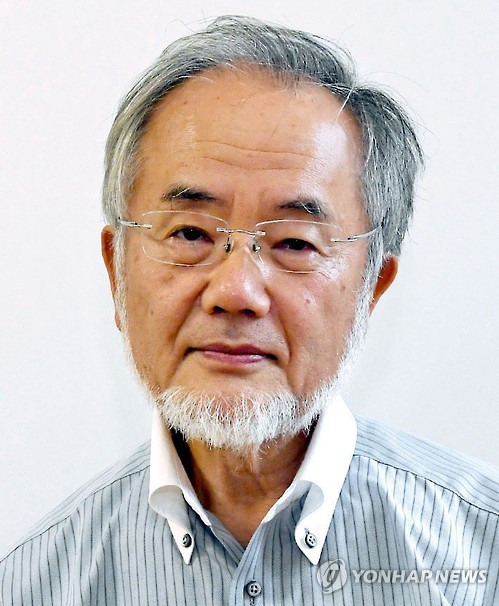
Since 2001, Japan has 16 prize winners including Professor Yoshinori Osumi in the field of the natural science, and that is the second following the United States (55). The secrets that Japan distinguished itself in the field of science of Nobel prizes are, 1. State policy 2. Japanese characteristic culture 3. The efforts of the Japanese academic world etc.
I can finally find the Japanese Nobel Prizes to be the results that many aspects such as the policy and the culture connected. Hong Jong-guk (69) who wrote "Japanese Nobel Prizes in science fields - Why Japan could win many Nobel Prizes in science fields" and is the advisor of Korea technologist association in Japan said, "At first the base is important. It is one of the secrets that the education bases are prepared in Japanese universities from Hokkaido to Kyushu." And he added, "It is important that the researchers can concentrate on their studies for a long time, and they have such minds and there is atmosphere where people understand that. They have the high network that interacts with not only the Japanese researchers but also whole world." |
|
My opinion
The Korean reporter speaks the difference between Japanese and Korean national traits.
|

Indian Super League side Mumbai City FC's marquee signing Diego Forlan opens up on his long career and his stint in Japan's J-League. Diego Forlan, who used to be a one-man demolition squad for his national team Uruguay, places team wins over awards won for spectacular goals off his boots. The winner of European Golden Shoe twice (2004-2005/2008-2009) and FIFA Golden Ball once (2010 World Cup), said he values victories like the 2011 Copa America trophy over personal milestones. “I feel happy when the goals I scored helps the national team to qualify or win tournaments. Titles won as a team gives me more joy,” said the 37-year-old. Mumbai City FC’s marquee player scored six times in 10 appearances at three FIFA World Cups (2002, 2010, 2014), besides 15 goals in 47 World Cup qualifying games for Uruguay. Forlan’s club highs include Man of Match award for two strikes in the 2010 UEFA Europa Cup final for Athletico Madrid against Fulham. The Indian Super League is the Uruguayan’s second stint in Asia, after a successful J-League debut with Japan’s Cerezo Osaka in 2014-2015 season. Forlan moved to Japan from Brazilian club Internacional on an 18-month contract and guided his club into the AFC Champions League knockouts in the process. Cerezo Osaka signed him after the striker’s third World Cup appearance in 2014. Replying to a question about Japan’s success among Asian nations in gaining World Cup qualification, he explained: “The Japanese try to do things as perfectly as possible. It is difficult for others to follow their way, not many countries in Asia have managed.” Five back-to-back appearances in FIFA World Cup by Japan, since debut in 1998, is a remarkable achievement by the nation. Forlan points out that Japan sends its talented youngsters to major football nations. “Uruguay has seen many young Japanese, who come in groups to play, watch Uruguayan teams in training and learn.” He added: “Japanese believe in taking something from everyone. Uruguay, Brazil, Argentine, you will find young Japanese in most of the leading football nations. The J-League clubs also invite foreign players. The rise in club standards helped Japan put up a better show internationally.” Uruguay and Japan qualified for the knockout from different groups in 2010 World Cup. Forlan inspired his nation to wins over South Korea, Ghana before losing the semifinals to the Netherlands. Forlan’s volleyed goal against Germany in the 2010 WC third-place match was named by FIFA later as the ‘Goal of the Tournament’. He moved from Villareal FC in the Spanish league to higher-rated Atletico Madrid, followed by a move to Serie A with Inter Milan. He then went on to ply his trade with Internacional in Brazil before the J-League. He moved from Japan back to Uruguay with Penarol FC till last season when the Indian Super League clubs got him on the radar. |
My opinion
|
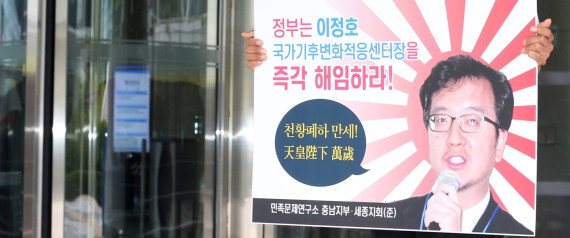
Lee Jong-Ho, the director of the national climate change adaptation center owned by Korea Environment Institute (KEI) cried "Long live the (Japanese) Emperor!" for three times. And the disposal of suspension from duty two months was given to him. The Office for Government Policy Coordination of Korea , the upper part organization of KEI confirmed that "the injustices" such as many pro-Japanese remarks he said were facts. The staffs of KEI testified that the director Lee had repeated problem remarks such as "Japan is mother county". The director Lee denies his remarks. |
| Dismiss Lee Jong-Ho, the director of the national climate change adaptation center! |
My opinion
|

According to the Japan Haworthia association, 3,200 plants were stolen in Fujinomiya-city in Shizuoka prefecture, 2,900 were stolen in Kazo-city in Saitama prefecture and 540 were stolen in Tsuyama-city in Okayama prefecture. According to the association, the damages are reported in 6 prefectures and it amounts to 1,300 million yen (approximately 13 million dollar). In the case of Fujinomiya there was the figure of the man who pulled out the roots one after another and stole them in the picture of the security camera. A man of the Chinese nationality who lived in Okayama was arrested and prosecuted through this video. He denies the participation in the case and pleads not guilty at a trial. There were certain common suspicious moves before the cases. A woman who said she was a Chinese visited the house and she saw the works. And most of the damages were taking place few days later. According to the man of the victim, the works which looked very much alike stolen ones were sold on the Internet afterwards and were commented in Chinese. The victim suspects that this woman might be in charge of preliminary inspection. The Japanese police consider that a Chinese theft group may concern the cases. |
My opinion
|
1. Japanese house does not have the iron fences for the crime prevention.

I can't believe it. |
2. Japanese has a long wallet in the back pocket.

When my friend left a shopping bag in a train and he came back to the station, the perishables were kept in the refrigerator. |
3. Even if you are in a deep sleep in a train, your bag is not stolen.

Chinese tourists think Japanese are the people that have chances to be stolen. |
4. You can see the vending machines anywhere.

It's too mysterious that thieves don't have their eyes on them, though the boxies with money and the products are installed outdoors. |
5. Unmanned stores

How can people trust each other like this? |
6. Free umbrella rental

|
7. The supermarket does not have lockers for the baggage.

|
8. You can leave your seat putting valuables there at a restaurant.

Some put the cell-phone and the wallet on the table and leave the seat. Many Chinese residing in Japan have acquired this bad custom. |
9. Children go to and from school without adults.

|
10. It is safe for a woman to go out alone late at night.

|
My opinion
|